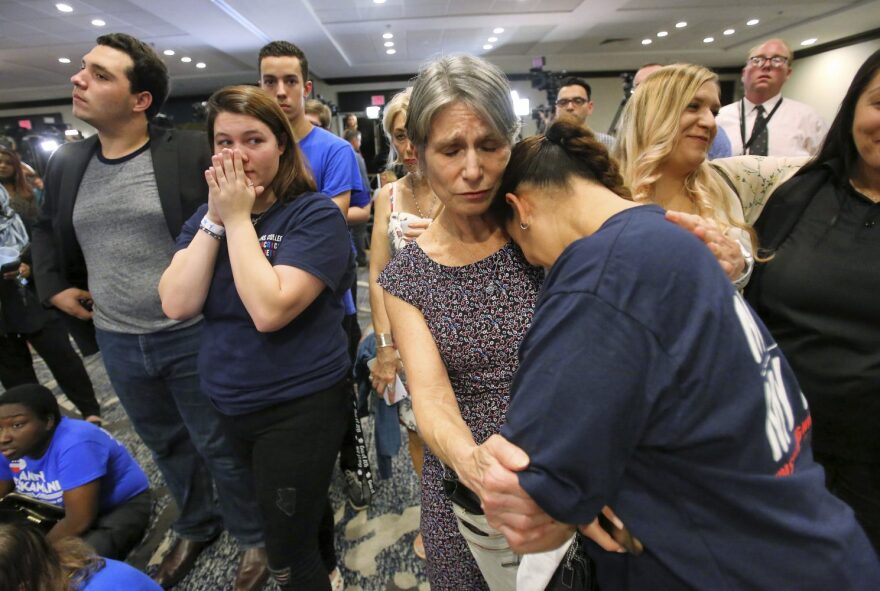Tuesday's midterm elections came to a harrowing end with several races left undecided for Florida voters and elected officials. Up to five races may qualify for a recount, including the highly contested U.S. Senate race between GOP candidate Rick Scott and incumbent Democrat Bill Nelson.
To trigger a recount, votes must come within one-half of a percentage point, according to Florida’s Division of Elections.
Nelson trails Scott by .38 of a percent - or 30,161 votes.
Although Sen. Nelson said a recount will proceed, whether or not that happens will depend on the final election tally determined over the next few days, said Michael McDonald, associate professor of political science at the University of Florida.
“At this stage what will happen is political parties will be going out and identifying anyone who has cast a provisional ballot or had some other issue with their ballot,” he said.
Kim Barton, Alachua County Supervisor of Elections, said county canvassing boards will add any unscanned early voting ballots and mail-in ballots to the tally.
Florida’s Division of Elections set a deadline of Nov. 10 at noon for the 67 counties to send in final tallies.
“It’s not implausible that the lead actually can change in the Senate election, before certification,” McDonald said.
After the state totals the counts, if a race remains separated by less than .5 of a percent, Secretary of State Ken Detzner will order a machine recount, Barton said.
Candidates cannot call for a recount, said Will Boyett, chief deputy of Alachua County Division of Elections.
In the case of a machine recount, county canvassing boards would retest ballot-processing equipment, run ballots through the machines and then compare the results to the original results, Boyett said.
The recount would be due by Nov. 15 at 3 p.m. The Secretary of State and Division of Elections would then determine if any races fall between one-fourth of a percent. If so, a manual recount is issued.
A manual recount would involve teams of people going through ballots by hand, Barton said. Any ballots that did not have a clear vote read by the machine are brought before the canvassing board for review, Boyett said.
“Like checkmarks, for example, you guess the voter was indicating a preference for this candidate,” he said.
The manual recount would be due on Nov. 18. Once the state tallies those results, it becomes the official count, Boyett said.
These possible recounts would only be for state or multi-county races, so in the case of local elections, the county canvassing board would have to issue a recount.
The following Florida races may be up for a recount:
- U.S. Senate: Republican Rick Scott vs. Democrat Bill Nelson
- Florida Commissioner of Agriculture: Republican Matt Caldwell vs. Democrat Nikki Fried
- Florida Senate: Democrat Janet Cruz vs. Republican Dana Young
- Florida House District 26: Republican Elizabeth Fetterhoff vs. Democrat Patrick Henry
- Florida’s House District 89: Republican Mike Caruso vs. Democrat Jim Bonfiglio

